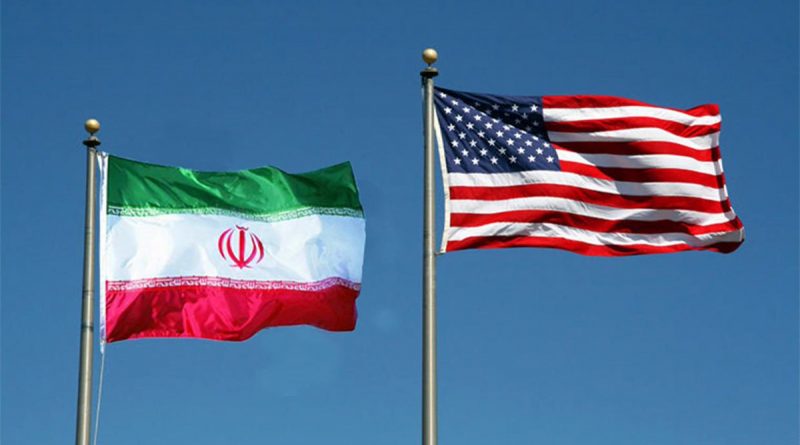Compromise or war. What will the collapse of the Iran-U.S. nuclear deal negotiations lead to?
Compromise or war. What will the collapse of the Iran-U.S. nuclear deal negotiations lead to?
The Vienna talks on the Iranian nuclear deal are at an impasse. Washington and Tehran cannot agree on the terms of resuming the agreement and accuse each other of a lack of compromise. Against this background, the U.S. is looking for ways to put pressure on Iran, including through non-diplomatic means. Israel, a key ally, is ready to help the Americans in this by urging the US to be tougher and even go for a military escalation.
At the end of November, the seventh round of talks on returning Tehran and Washington to the Joint Comprehensive Plan of Action nuclear deal kicked off in Vienna. Before that, consultations had not been held for six months because of the change of president and government in Iran. Another attempt to negotiate a reinstatement of the agreement, from which the U.S. itself withdrew in 2018, is complicated by new tensions between Tehran and Washington.
For example, the Iranian government, led by Ebrahim Raisi, is demanding that the U.S. lift all anti-Iranian sanctions imposed by former U.S. President Donald Trump in order to return to the deal.
“The U.S. has never realized that without the removal of all sanctions imposed on the Iranian people since Washington withdrew from the nuclear deal, there is no way to return to the JCPOA,” said Iranian Foreign Minister Hossein Amir Abdollahian.
Another round of consultations took place in Vienna on Dec. 9, where the Islamic Republic presented the parties with a draft agreement to renew the JCPOA in the form of two documents on the lifting of U.S. sanctions and issues on the nuclear program.
“Obviously, Iran must be assured that all sanctions will be lifted, the U.S. will not again withdraw from the JCPOA and will not violate the procedures specified there and in the UN Security Council resolution. We are not putting forward any new or preconditions. We are talking about conditions stipulated by the JCPOA and UN Security Council Resolution 2231,” Iran’s permanent representative to the UN Majid Takht-Ravanchi said.
According to The Wall Street Journal, Tehran’s demands also relate to the lifting of sanctions that go beyond the agreement. In particular, these include sanctions for human rights violations, support for terrorism, and restrictions related to Iran’s ballistic missile program.
The United States argues that such demands are impossible to meet. For example, an unnamed State Department official told reporters that in the current consultations, Iran is putting conditions that “are not consistent with the compromises reached earlier.” According to the official, the concerns of Washington and European allies are shared even by Russia and China.
Russia and China were also quite puzzled by the extent to which Iran abandoned its own compromises and then doubled its demands. Earlier in Washington, it was noted that the Biden administration was willing to ease some economic restrictions on Tehran, including oil and finance. At the same time, the U.S. expects the Iranian side to fully return to fulfillment of the JCPOA conditions, which it has increasingly ignored in recent years.
Washington is now threatening to use “other measures” if the diplomatic approach still fails.
“I’m not going to go into all the details on this front, I’ll just talk about some of the coordination we’re doing at the international level,” the White House website quotes White House press secretary Jen Psaki as saying.
“Coordination at the international level,” she refers to U.S. efforts to increase pressure on Iran with Middle Eastern allies. Primarily with the UAE and Israel. In the first case we are talking about economic measures, in the second – about military measures.
For this purpose, a special U.S. delegation headed by an official from the Treasury will travel to the UAE, a country which is one of Tehran’s key trading partners. It is believed that it is there that the Islamic Republic, disconnected from SWIFT, bypasses international financial restrictions and conducts trade. According to WSJ, citing the Iranian customs, in the previous year the Emirates were the second largest non-oil exporter to Iran and the third largest non-oil importer of Iranian goods.
A U.S. delegation led by OFAC Director Andrea Gatzki will work with the private sector and key UAE government officials to understand how local companies contribute to the “illicit Iranian trade.”
They will meet with representatives of petrochemical companies and other private firms and banks in the UAE “that make billions of dollars from trade with Iran.”
In effect, this means that the U.S. will increase surveillance of Iranian transactions in the UAE, including among private businesses. Being under the supervision of the U.S. financial authorities, the latter are unlikely to dare to further cooperate with Iranian partners. It might hit the income of the Islamic Republic and limit the work of some Emirati companies. At the same time, the UAE is likely to be only the first of the countries where the U.S. commission will go. In the future, inspectors may begin to monitor other Iranian trading partners from Malaysia, Turkey, China and other countries.
